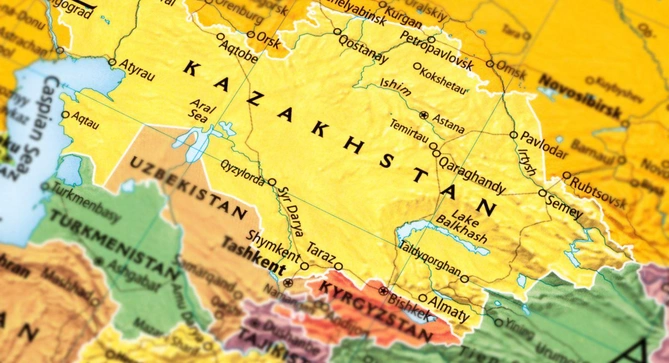
Photo: lsa.umich.edu
The Caspian Post presents an interview with Balnur Korganbekova, an expert in public policy and international relations. Based at Nazarbayev University in Astana, her work focuses on international conflicts, the situation in the Middle East, and gender equality issues. She also serves at the Heartland Expert-Analytical Center.
- How do you assess the current US influence in the regions of the South Caucasus and Central Asia? What key goals does Washington pursue in these two regions?
- The U.S. influence in the South Caucasus and Central Asia could potentially increase. Under the Biden administration, political relationships between the U.S. and these regions faced several complications, especially in the South Caucasus due to the political situation in Nagorno-Karabakh. In terms of U.S. interests in both regions, Washington often emphasizes economic ties, with a strong focus on the energy sector-such as potential pipeline projects or partnerships. A key goal is to conclude agreements that ensure energy security and establish efficient energy transportation logistics. Additionally, it is important to note the U.S. policies aimed at promoting human rights, good governance, and the sovereignty of states in the South Caucasus and Central Asia.
- Recently, the South Caucasus has become an arena of active rivalry between geopolitical players. How do you think the US will build its policy in this context, especially against the backdrop of the growing influence of Russia and China?
- The geopolitical environment in the South Caucasus is complex, particularly as states in the region seek to bandwagon with major powers like Russia and China, whose influence is growing. The conflict between Armenia and Azerbaijan has also destabilized the area, requiring careful negotiation strategies. Consequently, the U.S. may adopt a balanced approach when dealing with these countries. Undoubtedly, the U.S. has a rising interest in collaborating with Azerbaijan. Yet, given the Armenian lobby in the U.S., Washington will also aim to improve economic ties with Armenia by mediating in the Nagorno-Karabakh conflict and devising new initiatives to balance Russian and Chinese influence in the region.
- Central Asia has traditionally been considered an area of interest for Russia and China. However, the US is actively looking for ways to strengthen its presence in the region. What tools and mechanisms, in your opinion, will the US use to achieve its goals in Central Asia?
- The U.S. actively sponsors various programs in Central Asia and collaborates in areas such as economics, education, energy, the environment, and security, as outlined in the C5+1 statements. One example is the cooperation between the U.S. and Central Asian states on combating terrorism and preventing radicalization, which is receiving increased attention along with the importance of independence and sovereignty. At the same time, China’s Belt and Road Initiative and Russia’s regional dominance can challenge the development of territorial integrity and the autonomous foreign policies of Central Asian states, given their reliance on alternative alliances.

Getty images
- The US is increasingly relying on tools such as sanctions and economic partnership. Can we expect increased economic pressure from Washington on the countries of the South Caucasus and Central Asia? What consequences could this have?
- Although the U.S. often relies on mechanisms such as sanctions and economic partnerships, it is unlikely that it would intentionally exert strong economic pressure on the states of the South Caucasus and Central Asia. Such pressure would reduce U.S. influence, as most countries in the region would likely turn to Russia and China to mitigate the effects of any economic measures imposed by Washington. Possible consequences could disrupt the balance of power in the region, and harsh U.S. actions might be perceived as an intrusion on national sovereignty.
- Can we expect the US to seek to strengthen its military-political presence in the South Caucasus and Central Asia? Which countries, in your opinion, could become key partners of the US in this direction?
- It is possible that the U.S. will further pursue a military-political presence in the South Caucasus and Central Asia due to existing threats to regional security and stability (such as terrorism, border conflicts, etc.), as well as to counter the capabilities of other major powers on the continent. In the South Caucasus, Georgia stands out as a strategic partner, considering its aspirations to join NATO and its potential willingness to partner with the U.S. In Central Asia, Kazakhstan and Uzbekistan appear to be the most likely candidates. Their geographical positions (Kazakhstan shares borders with Iran, and Uzbekistan borders Afghanistan) give the U.S. strategic advantages in terms of military-political presence. Additionally, the complicated U.S. relationships with Iran and Afghanistan, along with ongoing destabilization in neighboring regions, pose significant threats to Kazakhstan and Uzbekistan. Currently, the U.S. is actively collaborating with both countries on military matters through NATO partnerships and bilateral military training programs.
- Given current trends, what key US steps can be expected in the next 5-10 years in the South Caucasus and Central Asia?
- It is highly probable that the U.S. will continue to use soft power in pursuing its goals in both regions, mainly in economic, security, and energy sectors. Over the next 5-10 years, we may see an increase in U.S. influence in the South Caucasus and Central Asia through enhanced agreements within existing frameworks, such as further development of the C5+1 partnership, expansion of diplomatic missions, and deeper cooperation on cybersecurity. All these efforts are likely to bolster Washington’s influence in these regions.
Share on social media